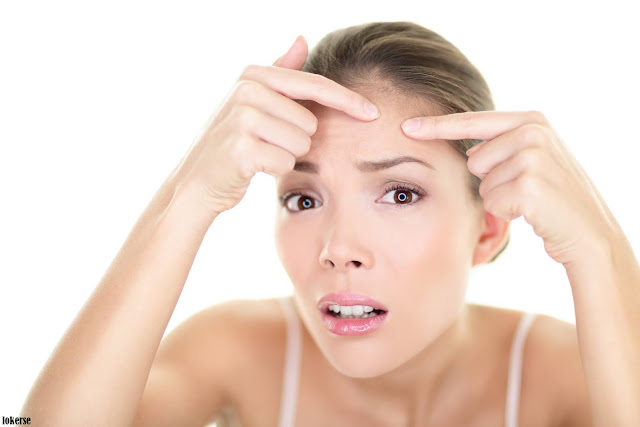Vitamins for Acne: What Is The Most Important?
When the amount of intake of vitamins and minerals in food is not met, then there will be a state of vitamin and mineral deficiency. Vitamin deficiency can produce serious complications, one example is acne. Vitamins are very beneficial for the function of enzymes, cells, organs, tissues, and systems. By taking the right vitamins, the usefulness of vitamins such as antioxidants, anti-inflammatory, antibacterial, and antichomedogenic will work against acne, and reverse the biochemical process. The following are vitamins and minerals for acne :
1. Vitamin A
This vitamin is needed to help cure acne, but make sure you take vitamin A properly. Vitamin A, also known as retinoid isotretinoin, is used to cure severe inflammation and acne, when other treatments are unsuccessful. Besides beneficial for skin cell turnover, isotretinoin also serves to reduce sebum production. Based on a review published in October 2012 American Family Physician, 40% of participants are people with severe acne. After 20 weeks of isotretinoin treatment, they no longer need treatment. While 40% of other participants need treatment directly given to the skin, or by drinking antibiotics. The remaining 20% require a second stage of isotretinoin administration.
However, when you decide to take vitamin A supplements, be sure not to over-consume them. High intake of vitamins can be toxic in the body. You can also get vitamin A given directly to the skin. Retinoids (derived from vitamin A) are thought to be an effective treatment for acne because of its ability to regenerate skin and heal skin quickly. The downside, retinoid substances can weaken the skin's natural defenses against sunlight. So, you should also avoid excessive exposure to sunlight while in this treatment.
2. Zinc
Zinc is a mineral that can help cure acne. You can take it as a supplement or treatment that is applied directly to the skin. Zinc is believed to reduce the production of oil on the skin, and melawam bacterial infection and inflammation. This opinion is based on a review on the study quoted Health Line site. According to The Institute of Medicine, the recommended intake for adults is about 8-11 mg per day. There is evidence that 30 mg is a safe limit to help cure acne, but keep in mind that too high a zinc intake can also be harmful to the body. Some people even complain of pain after taking excessive zinc. So, just enough consumption.
3. Vitamin E
Actually, the relationship between acne healing with vitamin E is not very close, in contrast to vitamin A. However, researchers who published the topic Clinical and Experimental Dermatology in May 2006, quoted by Livestrong site, reported that 100 people who do not treat acne have vitamin E levels which is lower in its blood compared to people without acne. The existence of a link between low vitamin E in the blood with the appearance of severe acne, does not mean can be drawn the conclusion that low vitamin E can cause acne. More research is needed to prove the effectiveness of vitamin E in acne cure. But keep in mind also that vitamin E contains antioxidants that can fight free radicals, so it still has benefits on skin health.
4. Nicotinamide
Nicotinamide is a form of vitamin B3 or niacin. This substance has been used directly to cure acne. A study reported in the Journal of the Turkish Academy of Dermatology in 2008, quoted by the Livestrong website, found that applying 4% nicotinamide gel within 8 weeks can decrease acne levels that appear in people who have mild or moderate acne. One of the reasons for its effectiveness is the anti-inflammatory present in nicotinamide.
What causes acne?
If you have to explain the exact cause of acne, we should listen to everyone's case, because the cause of each person will vary. In most cases, acne is caused by an increase in androgen hormones. Rising hormones can make the oil glands in the face produce a lot of oil. If it were so, damage to the cell wall in the face can occur, as a result bacteria will develop. Most cases of acne also come from genetic, but also triggered by high bacteria (propionibacterium acnes) in the face.
In addition, a study published by the Journal of the Academy of Nutrition and Diatetics found that a high glycemic diet can trigger the spread of acne. Here are foods with high glycemic, such as:
White bread
White potatoes
Processed foods
Sugar food
Rice
Pizza and other fast food
All you need to remember about vitamin and mineral treatments
If you have acne that is quite disturbing, you should immediately consult a doctor and dermatologist. They will observe the cause and do the treatment that suits you, one of which is the provision of vitamins and minerals to cure acne. Some treatments may involve high-dose vitamins that doctors can monitor. Please note that this treatment may have serious side effects. For example, isotretinoin may increase the risk of miscarriage if taken by pregnant women. So make sure you consult a doctor before deciding to take supplements.

EmoticonEmoticon